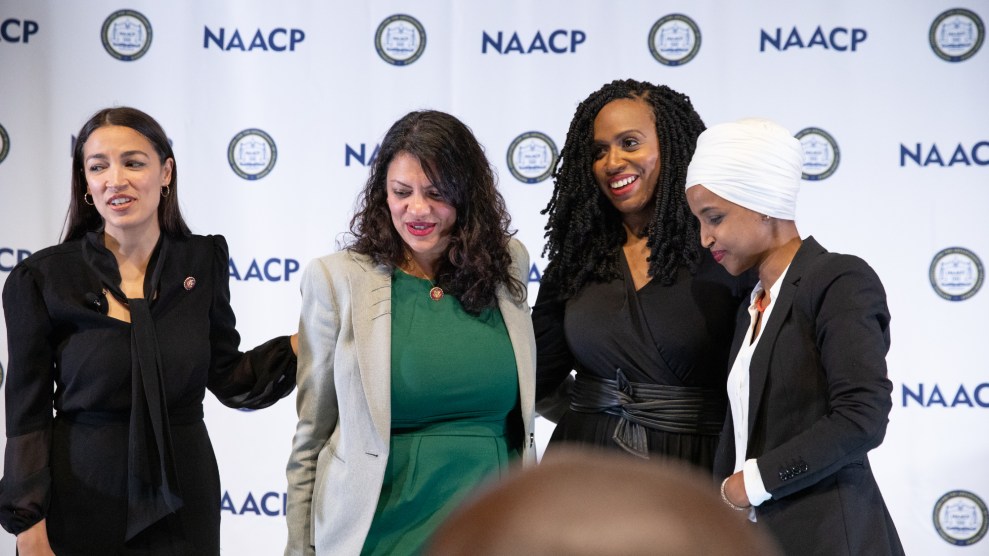While tobacco’s assault on the Food and Drug Administration has drawn more publicity, the industry has quietly won an equally important battle against the Occupational Safety and Health Administration. In 1994, OSHA proposed restrictions on smoking in the workplace. The proposal, intended to protect nonsmokers from the dangers of secondhand smoke, is in limbo due to a concerted attack by the tobacco companies. As in their war on the FDA, they orchestrated a massive letter-writing campaign in order to create the impression of an “anti-big government” citizens’ uprising against OSHA. That impression worked only too well: Insiders at OSHA report getting death threats, and U.S. marshals monitored packages delivered to the agency.
Of the more than 100,000 comments OSHA received, the vast majority criticized the rule. This postal blitz was organized, funded, and, in many cases, even written by the tobacco industry. Tobacco also succeeded in dragging out OSHA’s public hearings on the proposed rule for months, by calling numerous witnesses and submitting thousands of pages of testimony.
The issue of secondhand smoke is particularly dangerous for the tobacco industry, because it moves smoking–and its corollary health risks–out of the realm of personal choice. Anti-smoking activists know that their best weapon is the anger nonsmokers feel over breathing secondhand smoke. The tobacco industry knows it, too. As far back as 1978, a Roper Poll commissioned by The Tobacco Institute concluded that the nonsmokers’ rights movement is the “single greatest threat to the viability of the tobacco industry.” But, while the FDA and large anti-smoking coalitions like the Campaign for Tobacco-Free Kids garner significant attention for their attacks on tobacco advertising to children, campaigns that focus on the dangers of secondhand smoke seem to have been derailed.
OSHA’s rule on smoking in the workplace has stalled, and agency officials, who once expected to have the rule in place by the end of 1995, now say they can’t predict when it might happen. One source close to the agency says the combined effect of tobacco’s assault, a lack of support from anti-smoking groups, and the GOP takeover and subsequent budget stalemate–which has left federal agencies underfunded and uncertain of the future–may have made OSHA nervous about moving forward on the controversial ban.
But the letter-writing campaign inadvertently tapped into the groundswell of grief and suffering for which the tobacco industry has always denied responsibility. In more than a hundred instances, the industry’s campaign backfired:
- Paul Azevedo wrote OSHA: “James Johnston, CEO of the multi-billion dollar R.J. Reynolds Tobacco and Bloodsucking corporation has written me…. My dad suffered terribly and died because he was seduced into smoking at an early age by people like Jim Johnston…. Do not be buffaloed by Mr. Johnston and those fools who follow his lead.”
- Faye Diffler, reacting to a solicitation from R.J. Reynolds, wrote OSHA: “It was addressed to my mother who passed away from smoking cigarettes. She has been dead eight years but I miss her every day. I hope we can stop this horrible habit we force on the American people. Please ban cigarettes altogether everywhere.”
- Gardner Roberts of Haverhill, Mass., declared: “My father died of lung cancer…. I am an ex-smoker myself and fear I have a time bomb in my own chest. Eliminating smoking will help future generations avoid what we went through as a family with my dad, and what I go through personally with my own fears.”
- Charles L. Smith, administrator of Parr’s Rest, a home for elderly women in Louisville, Ky., received a fax from Philip Morris offering “important information that could cost you thousands of dollars, affect your employees and customers, and put you at risk of fines that could exceed $70,000. It is crucial that you write immediately.” He did. He wrote to OSHA: “Under the guise of a ‘grassroots effort’ from businesses around the country, a dis-information lobbying campaign has been launched by this tobacco company which must be challenged for its self-serving distribution of biased misinformation.” Smith added that the cost of complying with OSHA’s proposed regulation paled when compared to the impact smoking had on his workers’ health, productivity, and morale.















